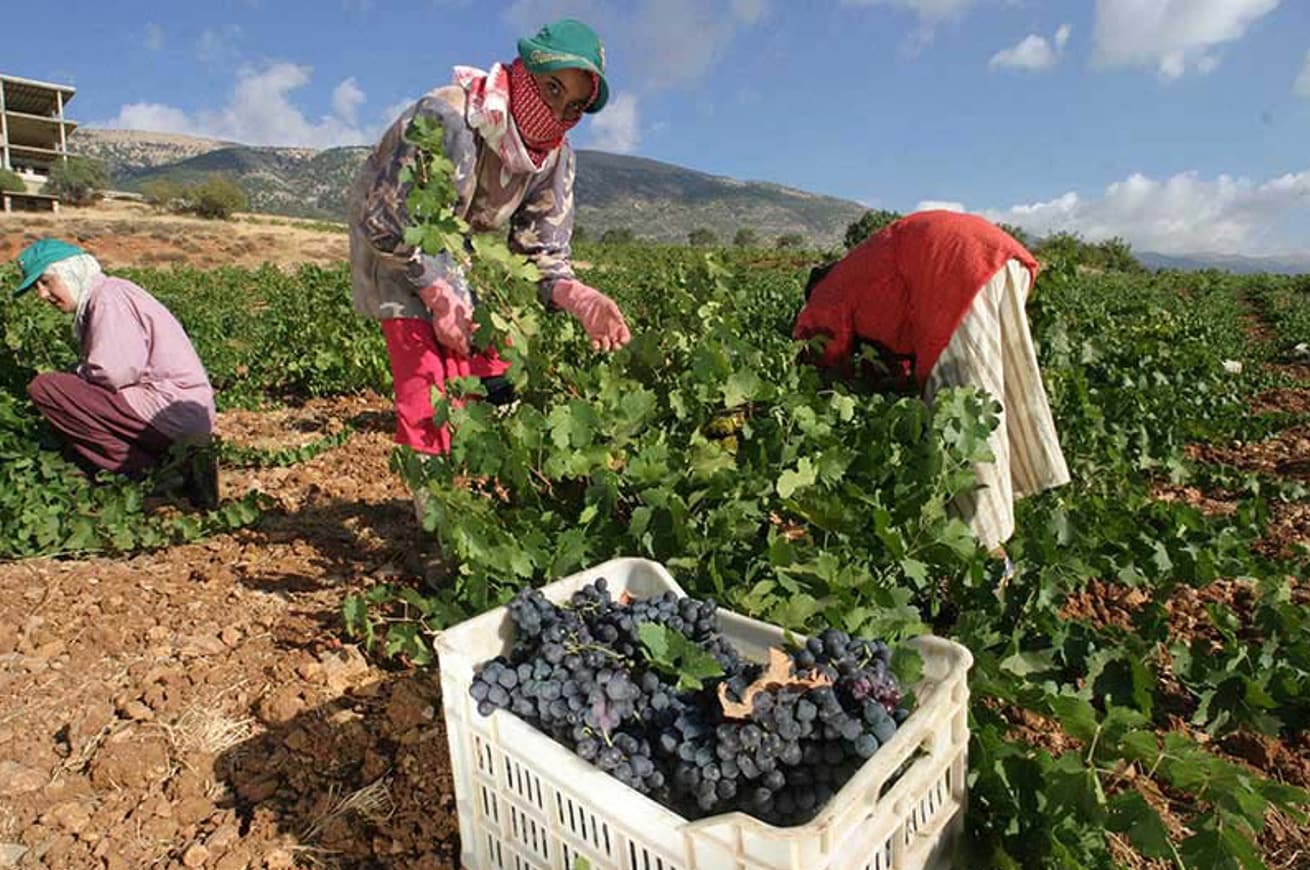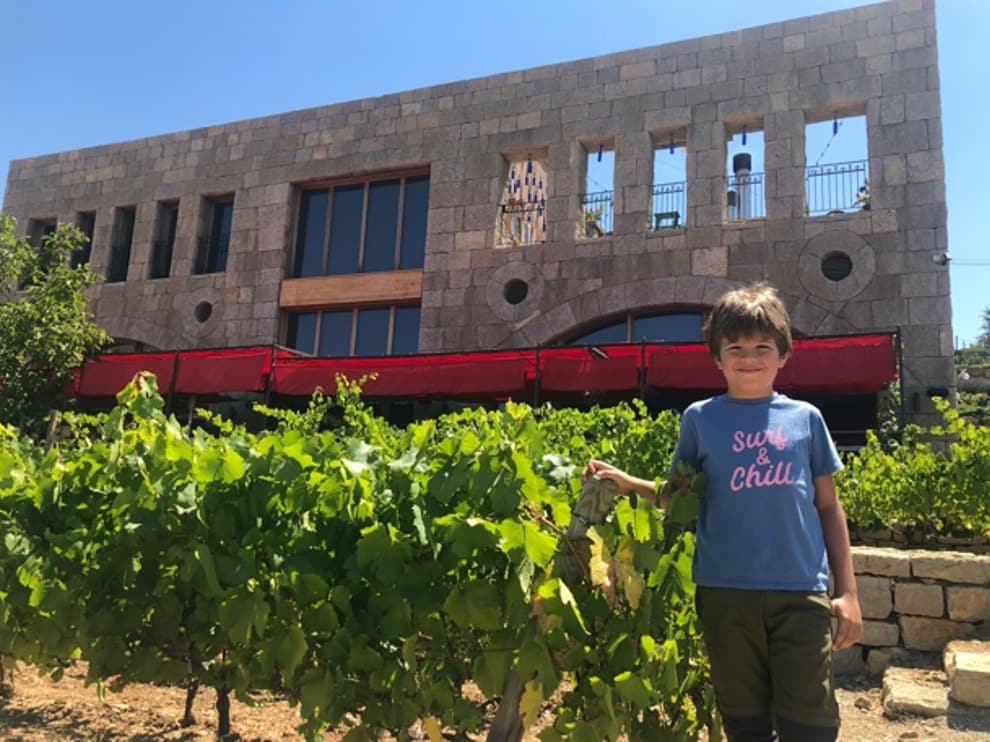Over the following years, Massaya increased plantings and production. With deep secular divisions entrenched by the civil war, they also bought grapes from farmers of all faiths, converting them into wine. A welcome symbol of tolerance and co-existence. Sami’s disarming warmth alongside Ramzi’s steadfastness, dedication and talent helped to build these relationships, whilst further adding to their impressive range of connections. In a country as entangled as Lebanon, these have often proved critical to the survival of Massaya.
In 2006 growing tensions between Israel and Hezbollah finally over-spilled, ignited by a cross-border raid by Hezbollah’s Iranian backed militia that resulted in the death of 3, and the capture of 2 Israeli soldiers. Israel responded with a number of missile strikes, followed by a ground invasion of Southern Lebanon. They bombed the airport and other key infrastructure targets and enforced an air and naval blockade of the country. Whilst this war was short-lived (34 days in total), damage was significant and over 1 million civilians were displaced.
The timing couldn’t have been worse. Just as the Massaya team were preparing to begin harvesting, Israeli jets began targeting any truck seen moving through the Beqaa. The grapes needed harvesting, and trucks were needed to take the pickers to the vineyards and transport the harvest to the winery. Fearing the loss of the entire harvest, they managed to get hold of the UK and US Ambassadors to see if they could help save the day. Enough diplomatic pressure was applied to convince the Israelis to spare any vehicle carrying the Massaya logo from air missile strikes.
As Sami continued his diplomatic efforts, Ramzi accompanied his workforce on every journey, ensuring the Massaya logo was emblazoned on the sides and roofs of every vehicle. The harvest was safely in, but the threat continued with the inescapable roar of Israeli jets circling constantly overhead. With six vintages now under his belt, Ramzi felt confident enough to oversee the fermentation on his own, safe in the knowledge that the Brunier/Hebrard helpline was permanently manned. The fermentation needed overseeing, but also protecting, as did the winery and the family home from another invasion by looters and squatters.

Massaya grape harvesting in the Beqaa
Without his brother’s faith in diplomacy and having witnessed a spectacular direct hit on a neighbouring glass factory, Ramzi didn’t feel safe to sleep in either the winery or the family home. He still bore the scars of the constant upheaval of his childhood, and still vividly recalls being torn away from the sanctuary of his bedroom, with his bed, his books and his toys, unable to return until he’d reached adulthood. He wasn’t going to be forced out of Tanaïl again. He promptly knocked up a makeshift shelter in one of the water channels in the vineyard, where he slept for the next 35 nights. With his brother’s AK47.
For millennia the Beqaa Valley has served as a fertile bread basket for countless regimes, and frequently as a corridor for marauding armies passing through the Levant to reach the strategic coastline at the eastern tip of the Mediterranean Sea. The Ghosns were just one of many families to have been forced out of their homes, and certainly wouldn’t be the last. With yet another reminder of Tanaïl’s precarious position, and with an overwhelming desire to create a more secure home for the family, Sami’s thoughts turned to another parcel of land his father had acquired in the 1970s. Somewhere more remote, some 1700m up the winding roads of Mount Lebanon in a Christian stronghold. 500m away from where he once stood alongside Dany Chamoun. Faqra.
The plans were ambitious. It needed to serve as a winery, a cellar, a visitor facility, a restaurant and a kitchen, whilst providing living quarters for staff and a family apartment. Giant blocks were hewn into the granite/limestone rock face to create the cellars, with the harvested stone used to construct a striking, solid edifice, built to last. It was their father’s favourite plot of land, and thankfully he survived to see it finished. Sami planted 5 cedars to mark its completion, one for this father, Michel Sr, who had worked tirelessly and invested the fruits of his labour wisely; one for his mother, Amal, the rock of the family, who had instilled faith and values in her children and ensured that they were physically and intellectually active; one for Ghada, his elder sister, whose pragmatism, resilience and financial acumen had been crucial to the success of the business. And one for Ramzi, whose courage, graft in the vineyard and skill in the winery had defined the essence of Massaya. Sami thought he deserved a cedar too.

Michel Jr, Sami’s eldest son, in front of the Faqra restaurant and winery.
Sami also built a mausoleum in the grounds, overlooking Beirut and the Mediterranean in the distance, where Michel Ghosn, sadly recently joined by his wife Amal, now lie together once more, no doubt with immense pride in what their off- spring have created.
Massaya Faqra now serves as the winery for the white wines of the estate and has built a fine reputation for their restaurant and its legendary Sunday brunch, with quality diligently upheld by Ramzi and Ghada. Much more than a winery and a restaurant: a family home for the Ghosn family, a sanctuary carved in the rocks for Massaya friends and followers, an emblem of Lebanon’s defiance and fortitude.
